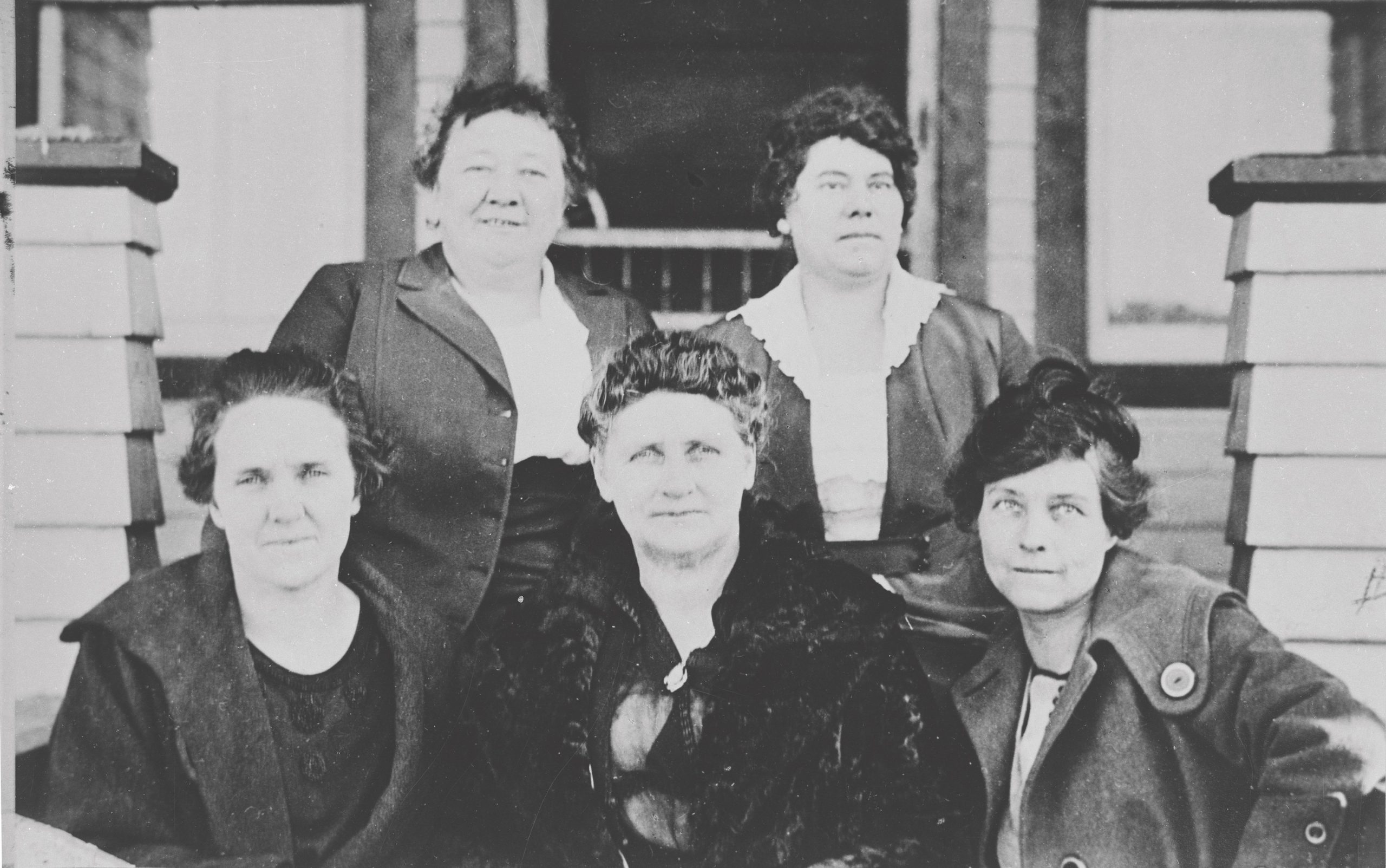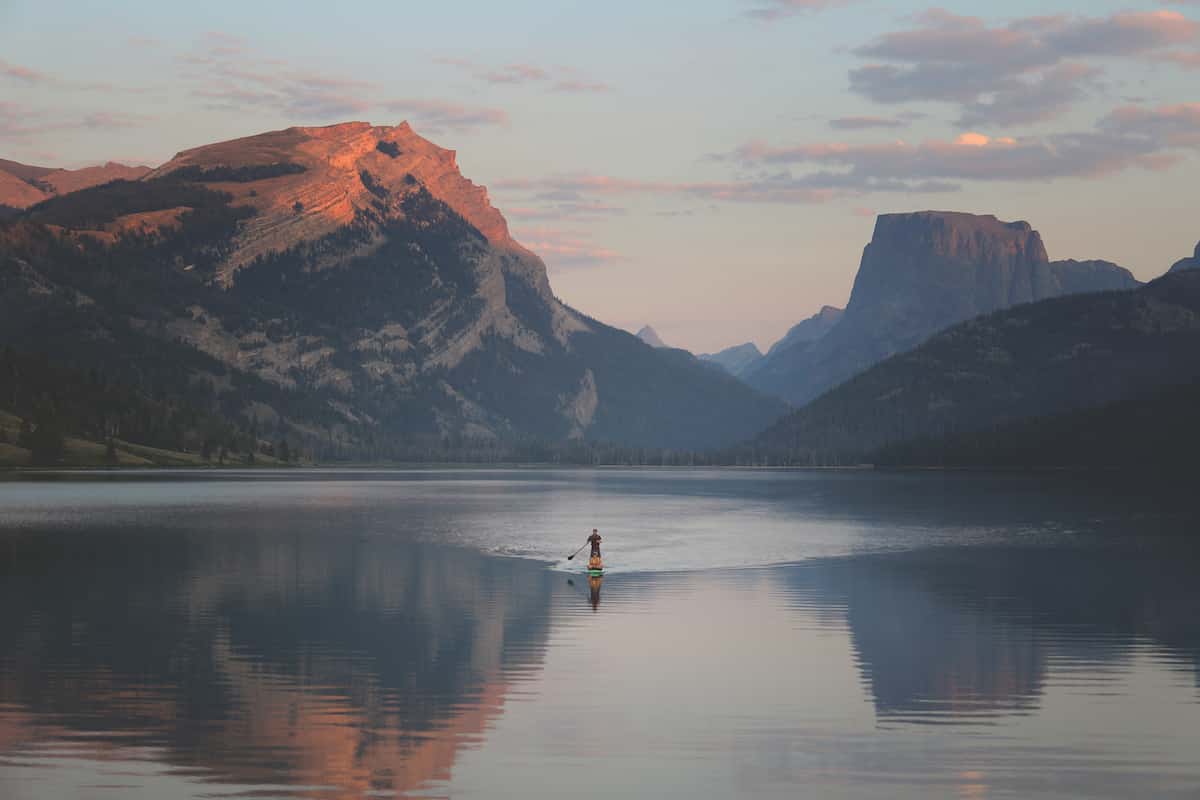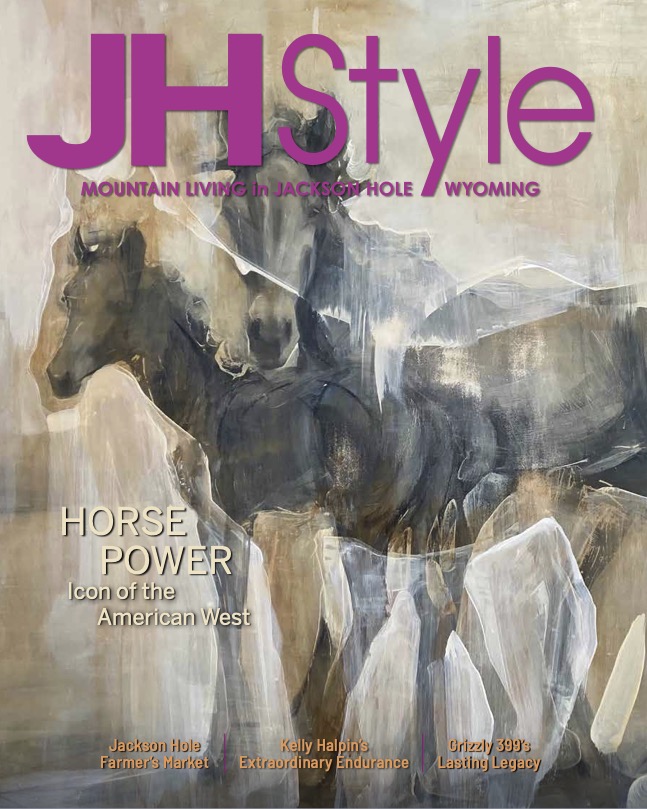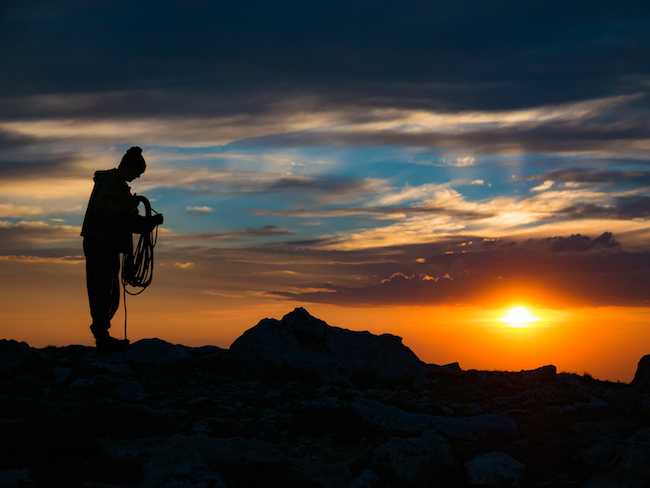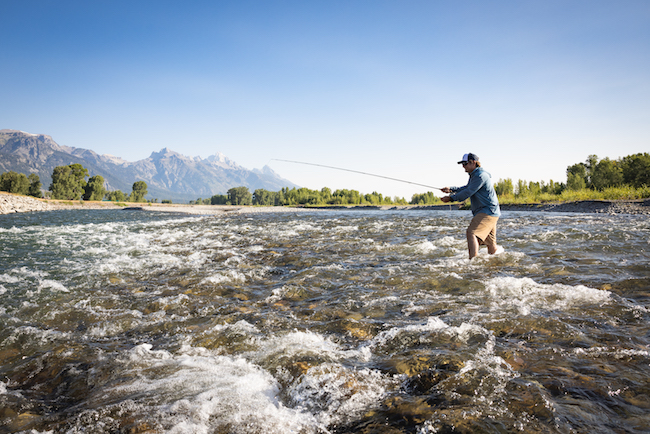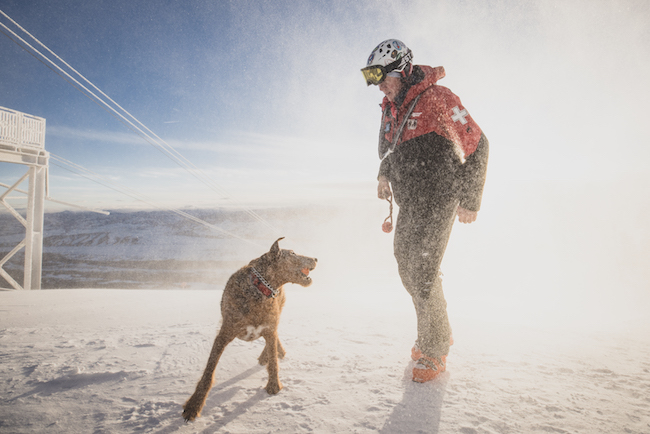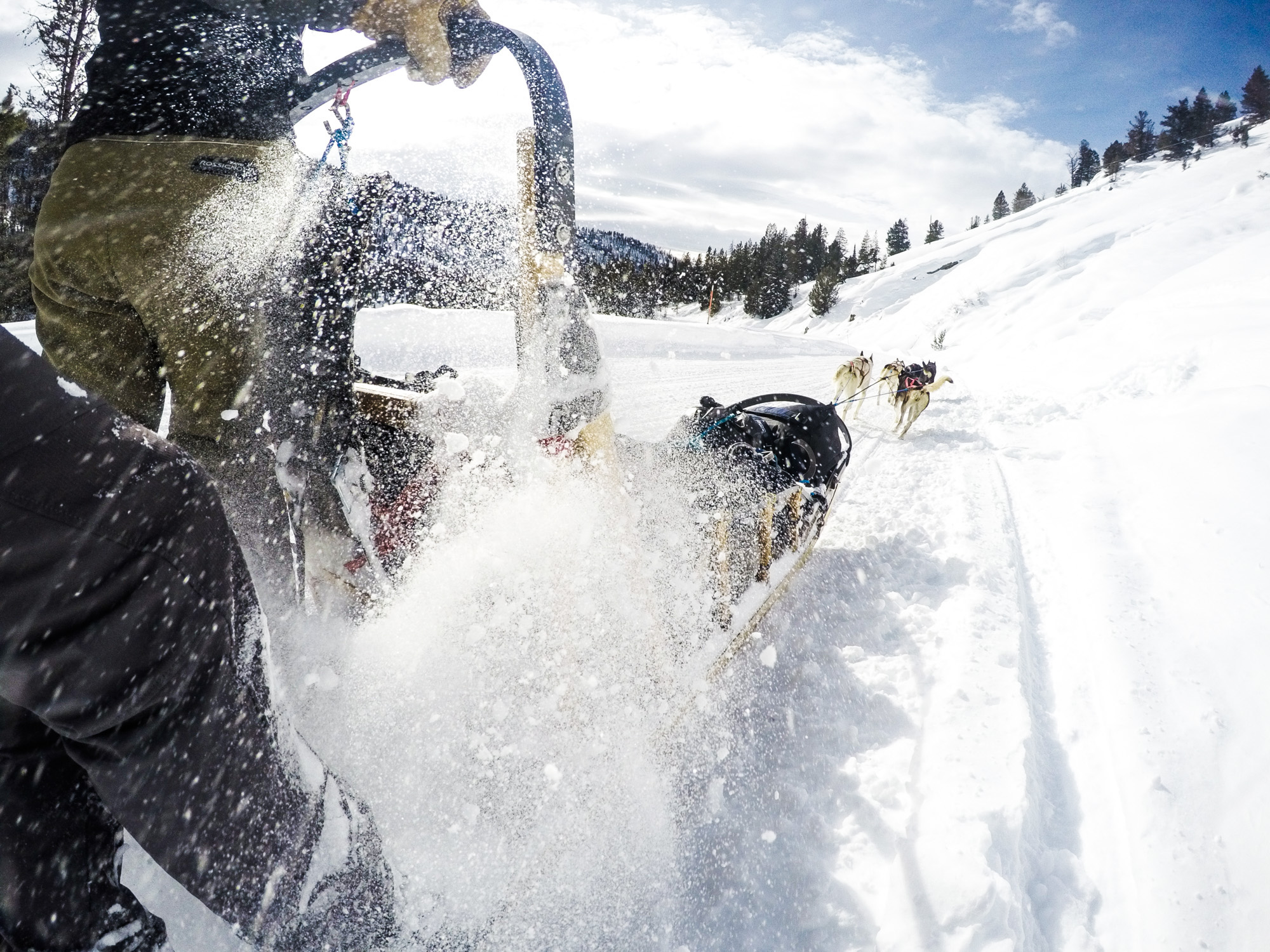The Lakers of Grand Teton National Park
11 Jul 2022
Maggie Gibson and her colleagues work to prevent human-wildlife conflict at String Lake
Summer 2022
Written By: Emmie Gocke | Images: Mark Gocke and courtesy
String Lake is one of Grand Teton National Park’s most well-loved gems.
Picnickers bask on the sandy shore and swim in the shallows. Anglers traverse the inlets and outlets. Kayakers cut ribbons through the glass-like reflection of the Tetons on crisp, clear mornings. Hikers, trail runners, alpinists, and skiers set out from the trailhead toward objectives like Mount Moran and Paintbrush Divide. The area is also a haven for wildlife — moose, elk, deer, bears, marmots, and many other species enjoy the diversity of plant life sprouting from the riparian area. But the proximity between people and wildlife can result in conflict, especially when it comes to improperly stored food on the shores of the lake. After a series of incidents where bears profited from food that was left out and habituated to humans, things hit a breaking point in 2015 — two black bears were relocated to zoos and two others were euthanized due to dangerous habituation that put park visitors at risk. Something had to be done, and Jess Erwin, the park’s volunteer coordinator, had an idea. The park lacked the funding and manpower needed to put rangers on the scene, so Jess suggested they train a specific group of volunteers to tackle the challenges at String Lake. Enter the Lakers, a group of 30 volunteers who have significantly reduced human-wildlife conflict through bear education and food storage checks. Since the program started, the Lakers have educated hundreds of thousands of visitors on bear safety and how to recreate responsibly in bear country. Very few incidents of human-bear conflict have occurred at String Lake thanks to their diligence and outreach. This summer is Maggie Gibson’s fourth season volunteering as a String Laker, a position she says is a blend of service and conservation, and a great excuse to get out on the String Lake trails. Maggie says she “loves seeing other people become passionate about nature, especially kids. I think it’s my small part toward conservation — helping people understand, be more comfortable, respect, and want to protect [animals]. It’s as simple as that.” Maggie has a long history of service work. After moving to Jackson in 1983, she and her husband, Les, opened Pearl Street Bagels, which they owned and operated for nearly 20 years. Since selling the shop, Maggie has focused her time on the Jackson Hole community — from serving as board president for Friends of Pathways to volunteering with the park. She also serves on the board of the Grand Teton National Park Foundation, the nonprofit that provides supplemental funding to the park, including radios, signage, and uniforms for the Lakers. Maggie hopes that educating visitors will inspire an appreciation for the bears that share the lakeshore. She notes that if visitors have bear spray and are at a safe distance, seeing a bear on the trail should be a special experience, rather than a frightening one. Maggie says these bears “don’t want to eat us. It’s sort of arrogant for us to think that’s the first thing on their mind. There’s such a low incidence of people and bear conflict that I’m always trying to educate people to really savor the experience if they see a bear … and not just be worried about [their] own safety — it’s a spiritual moment when you see that animal.” Maggie hopes that through education, the Lakers can help visitors maintain a positive perspective on bears and inspire the next generation of conservationists.

